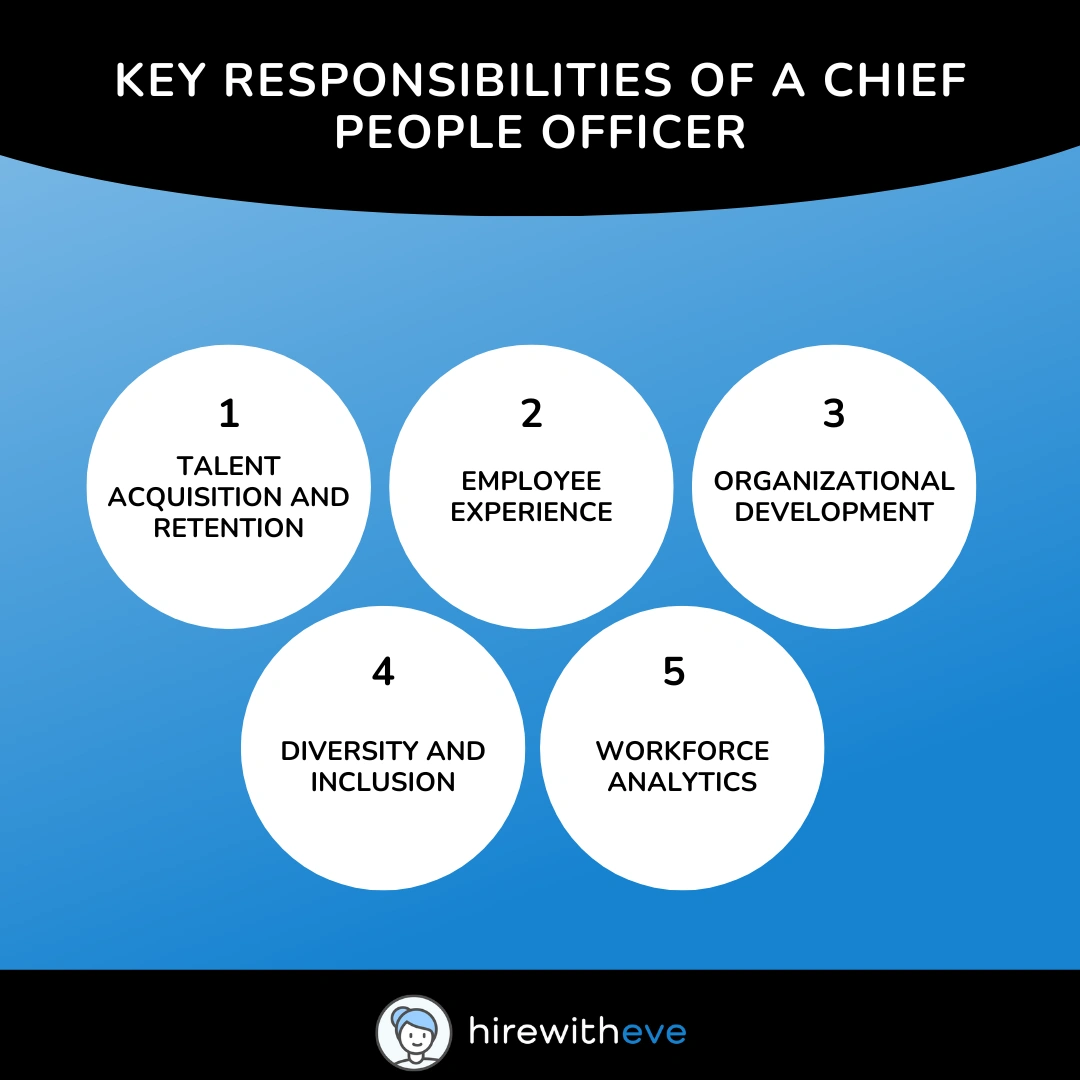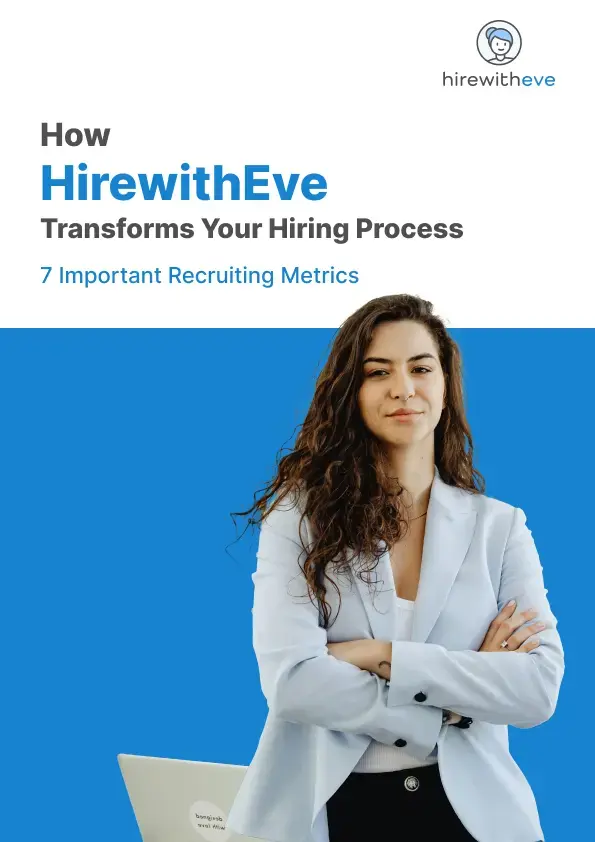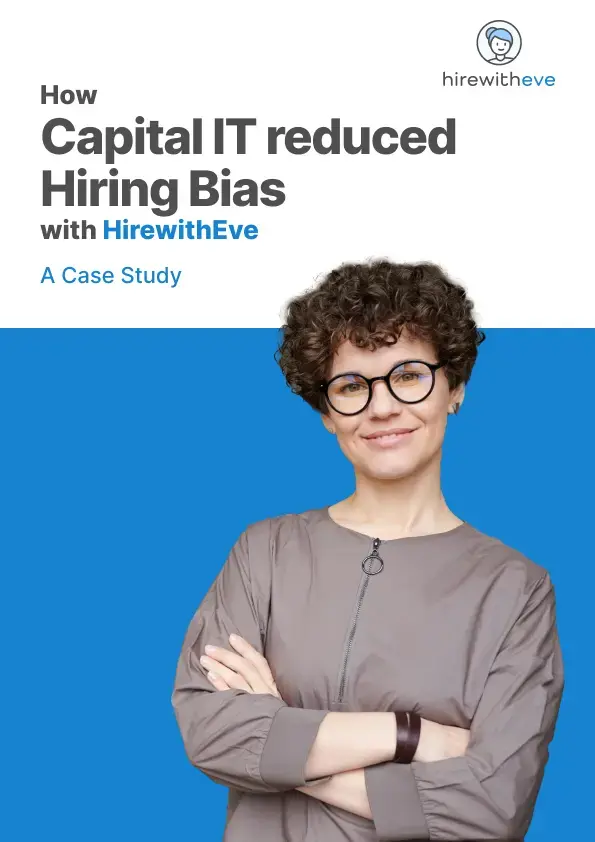What is the Role of a Chief People Officer (CPO)?
What is the Role of a Chief People Officer (CPO)?

In today’s business landscape, the role of the Chief People Officer (CPO) has become increasingly significant. With companies placing a stronger focus on employee experience, culture, and strategic workforce planning, the Chief People Officer (CPO) is now a pivotal leader within the executive team. For talent acquisition specialists and HR managers, understanding the role of a Chief People Officer (CPO) is crucial for aligning HR strategies with broader business objectives.
But what exactly does the chief people officer (CPO) do? How has this role evolved over the years, and why is it essential for companies to have a CPO in place?
In this blog, we’ll explore these questions and examine how a chief people officer impacts various aspects of an organization, including talent acquisition, culture building, and the adoption of HR technology.
Table of contents
The Evolution of the Chief People Officer (CPO)
Historically, the role of HR was primarily administrative, focusing on payroll, compliance, and benefits management. Over the years, as businesses recognized the importance of employee engagement and strategic human capital management, the chief people officer emerged as a role that addresses these broader needs. Unlike traditional HR leaders, the chief people officer is deeply involved in aligning people strategies with overall business goals.
Today, the chief people officer is responsible not just for managing human resources but also for driving company culture, improving employee engagement, and ensuring that the company attracts and retains top talent. This evolution reflects the growing importance of human capital in achieving long-term business success.
What are the Key Responsibilities of a Chief People Officer?
The responsibilities of a Chief People Officer are diverse, encompassing everything from employee relations to organizational strategy.
Below are some of the key areas where a Chief People Officer plays a crucial role:

Talent Acquisition and Retention: A Chief People Officer works closely with talent acquisition teams to ensure that the company’s recruitment strategy aligns with its broader goals. The CPO is also instrumental in developing retention strategies that reduce turnover and keep employees engaged and motivated.
Employee Experience: From onboarding to exit interviews, the chief people officer ensures that every touchpoint in the employee lifecycle is positive. A CPO focuses on enhancing employee experience by promoting a culture of continuous feedback and engagement.
Organizational Development: The Chief People Officer plays a key role in organizational development by shaping leadership development programs, career pathing, and succession planning. They ensure that employees are not only capable of meeting today’s demands but are also prepared for future challenges.
Diversity and Inclusion: A major responsibility of a Chief People Officer is to promote diversity, equity, and inclusion (DEI) across all levels of the organization. The CPO champions policies that foster a more inclusive workplace where diverse talent can thrive.
Workforce Analytics: Data-driven decision-making is becoming increasingly important in HR. The Chief People Officer uses workforce analytics to understand employee trends, measure the effectiveness of HR programs, and make informed decisions.
The Chief People Officer (CPO) and Company Culture
One of the most significant areas of impact for a Chief People Officer is company culture. The CPO is tasked with shaping and maintaining a culture that reflects the company’s values, promotes employee satisfaction, and drives business performance.
A strong company culture is not just a perk — it’s a critical factor in talent retention and overall business success. The Chief People Officer ensures that the company’s culture is both inclusive and supportive, helping employees feel engaged and aligned with the company’s mission. This involves everything from designing employee recognition programs to fostering open communication channels.
Companies with a strong, positive culture typically experience higher productivity, lower turnover, and greater innovation — all areas where the chief people officer plays a significant role.
Chief People Officer in Talent Acquisition and Retention
For talent acquisition specialists, the Chief People Officer is an invaluable partner. The CPO helps guide the overall recruitment strategy by identifying what type of talent the company needs to achieve its long-term objectives. They also ensure that recruitment practices are fair, inclusive, and designed to attract a diverse pool of candidates.
The Chief People Officer is also instrumental in developing employee retention programs. These programs often focus on employee development, career growth opportunities, and recognition — key factors that contribute to long-term employee satisfaction. By collaborating with talent acquisition teams, the CPO ensures that the right talent is not only hired but also retained through ongoing development initiatives.
The Strategic Role of a Chief People Officer in HR Technology
In the digital age, HR is becoming more reliant on technology to streamline processes and make data-driven decisions. The Chief People Officer often oversees the adoption of HR technologies like Applicant Tracking Systems (ATS), Employee Experience Platforms, and Workforce Analytics tools. These technologies enable companies to optimize recruitment, improve employee engagement, and make better workforce-related decisions.
A Chief People Officer is responsible for ensuring that these technologies align with the company’s goals and that they are being used effectively to enhance the employee experience. In many cases, the CPO will work closely with HR managers to implement and scale these solutions across the organization.
Conclusion
The role of the Chief People Officer is more important than ever in shaping the future of an organization. From enhancing company culture to driving strategic talent acquisition efforts, the CPO plays a pivotal role in ensuring the company’s success.
Platforms like HirewithEve can support Chief People Officers in their mission to build strong teams and create a positive work environment. HirewithEve provides tools for skills-based hiring, enabling CPOs to identify and retain top talent by focusing on the skills that matter most for each role. The platform’s integration with Applicant Tracking Systems (ATS) streamlines the recruitment process, making it easier to manage candidate pipelines and assess candidates effectively.
By using HirewithEve, Chief People Officers can leverage data-driven insights and optimize their HR strategies to align with broader business goals. Whether it’s enhancing recruitment practices or improving employee engagement, HirewithEve offers the tools needed to succeed in today’s fast-paced business environment.
In conclusion, the Chief People Officer plays a central role in both shaping and driving the future of HR, and with the right tools like HirewithEve, they can continue to lead their organizations to new heights.
Target Your Talent
Unlock tailored solutions for your recruitment and hiring needs with Eve Platform's extensive case study library.
Subscribe now to enhance your HR expertise and excel in your role.
Free Resources

Transforming Hiring: 7 Key Recruiting Metrics
Enhancing recruitment processes with data-driven insights for better hiring outcomes.

Reducing Hiring Bias with Hirewitheve.
Utilizing Hirewitheve to combat bias and streamline recruitment processes effectively.

Hiring Detail-Oriented Candidates
HirewithEve enhances hiring by accurately assessing candidate's attention to detail-oriented.
